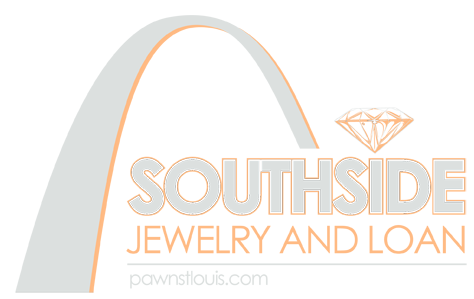Finding the best pawnshop can save you time and money. These local pawnshops offer quick cash for your items, making them a go-to for many. You want a luxury pawn shop that values your stuff, treats you fairly, and offers incredible pawn shop prices. Great pawnshops are known for their transparency and customer service. They provide clear terms and fair prices, ensuring you leave satisfied.
This listicle will highlight top-rated pawnshops that stand out in quality and reputation. You’ll discover what makes each one unique and why they’re worth your visit. Ready to find out which shops made the cut? Scroll down for reviews of our top picks!
Key Takeaways

-
Read Online Reviews: Check reviews on various platforms to gauge the reputation of pawnshops before visiting. This can help you find trustworthy shops.
-
Ask for Local Recommendations: Talk to friends or family who have experience with pawnshops. Their insights can guide you to reliable options in your area.
-
Visit Multiple Shops: Don’t settle for the first pawnshop you find. Visiting several places allows you to compare offers and services effectively.
-
Verify Licensing: Ensure the pawnshop is properly licensed. This protects you and ensures that the shop operates legally and ethically.
-
Negotiate Terms: Be prepared to negotiate terms like interest rates and fees. Many pawnshops are open to discussion, which can save you money.
-
Research Market Value: Before pawning or selling items, research their market value. This knowledge helps you get a fair deal and avoid being underpaid.
1. Online Reviews
Online reviews play a crucial role in assessing the reputation of pawn shops. Platforms like Google, Yelp, and Facebook provide valuable insights from people who have previously interacted with these businesses.
Look for consistent themes in customer feedback. Many reviews highlight experiences related to pricing, customer service, and item selection. For example, if multiple customers mention fair pricing or helpful staff, that serves as a positive indicator. Conversely, frequent complaints about bad credit handling or poor service may signal potential risks.
Recent reviews are particularly important. They reflect the current state of the pawn shop’s operations. A shop that once had a good reputation might have changed due to new management or policies. Always check the date of the reviews to ensure you are getting up-to-date information.
Consider the overall rating along with individual comments. A high average score combined with detailed positive feedback can suggest a reliable option. On the other hand, a low rating with numerous negative comments may reveal underlying issues.
Ultimately, online reviews can uncover secrets about how a pawn shop operates. They give potential customers a way to evaluate whether they want to engage with that business. By analyzing these reviews carefully, individuals can make informed decisions about where to take their items for pawning or selling.
2. Local Recommendations
Locals often provide the best insight into reputable pawn shops. Ask friends, family, or coworkers about their experiences. They can share valuable information about which shops offer fair prices and good customer service.
Community forums are another great resource. Websites like Reddit or local Facebook groups may have threads discussing pawn shops in your area. These discussions often include both recommendations and warnings. This can help you avoid shops with poor reputations.
Local business directories also play a significant role in finding highly-rated pawn shops. Websites like Yelp or Google Maps allow users to leave reviews and ratings. Look for shops with a high number of positive reviews. A shop that consistently receives praise for its inventory and service is likely worth your time.
When searching for a pawn shop, consider these factors:
-
Location: Choose a shop close to home for convenience.
-
Specialization: Some pawn shops focus on specific items like jewelry or electronics. Find one that aligns with your needs.
-
Customer Service: Look for shops that prioritize customer satisfaction. Friendly staff can make a big difference.
Gathering insights from locals ensures you make an informed decision. By leveraging personal experiences and community feedback, you can find a trustworthy pawn shop that meets your expectations.
3. Visit Multiple Shops
Visiting multiple pawn shops is essential for getting the best deals. Each shop has its unique offerings and pricing strategies. Comparing offers can save you money when buying jewelry or pawning items.
When you enter a local pawn shop, take note of the variety of items available. Some pawn shops focus on luxury goods while others may specialize in electronics or collectibles. This diversity means that certain pawn shops might have exactly what you’re looking for, whether it’s gold jewelry or vintage watches.
The atmosphere also plays a significant role. A welcoming environment can enhance your shopping experience. Pay attention to how staff interacts with customers. Friendly and knowledgeable employees can make your visit more enjoyable and informative.
Assessing how each shop values your items is crucial. Different pawn stores may provide varying estimates for the same item. For instance, one shop might offer a higher price for pawn shop gold jewelry than another. This discrepancy highlights the importance of visiting multiple locations to ensure you receive the best deal.
Statistics show that pawn shop patrons who compare offers often save up to 20% on purchases. By taking the time to explore different pawn shop locations, you increase your chances of discovering hidden treasures at competitive prices.
4. Check Licensing
Verify that the pawn shop is licensed and compliant with state regulations. This step is crucial for ensuring the legitimacy of the business. Licensed pawn shops must adhere to specific laws that protect consumers and ensure fair practices.
Research local laws regarding pawn shops. Each state has unique requirements for licenses and permits. For example, some states require a pawnbroker’s license, while others may have additional certifications. Knowing these regulations can help you identify reputable shops.
Confirm that the shop displays its license prominently. A visible license indicates transparency and accountability. If a pawn shop hesitates to show its license or claims it does not need one, consider it a red flag.
According to the National Pawnbrokers Association, licensed pawn shops contribute to community safety by following legal protocols. These shops often report suspicious activities and help recover stolen items. In fact, over 70% of pawned goods are returned to their rightful owners through proper reporting.
Checking licensing not only protects you but also ensures you are dealing with a reputable business. Make it a priority in your pawn shop search.
5. Evaluate Customer Service
Customer service plays a crucial role in your experience at a pawnshop. Knowledgeable staff can significantly improve your visit. They should be prepared to answer questions regarding the value of items, the pawning process, and any specific policies the shop has in place.
Observe how staff interact with customers. Friendly and attentive employees create a welcoming atmosphere. Their willingness to assist can make a difference when you’re unsure about what to do with your items. Good communication is key; it builds trust and ensures you feel valued as a customer.
Look into the shop’s policies on returns and exchanges. A pawnshop that allows returns or exchanges demonstrates confidence in its transactions. This flexibility can provide peace of mind, especially if you have second thoughts about your pawned item.
Consider reading online reviews or asking previous customers about their experiences. Statistics show that 70% of consumers say they would pay more for better customer service. This highlights the importance of evaluating customer service when choosing a pawnshop.
In summary, assessing customer service involves examining staff knowledge, interaction quality, and shop policies. These factors contribute to a positive pawning experience and help you feel secure in your decisions.
6. Compare Interest Rates
Inquire about interest rates charged by different pawn shops. These rates can greatly affect the total cost of borrowing. Each shop may offer varying terms, so it’s crucial to compare them.
Rates often depend on the type of item being pawned and the amount of the loan. For example, electronics might have lower interest rates compared to jewelry. This is due to their resale value and demand in the market.
Calculate the total cost of borrowing from each shop. This includes not just the interest but also any additional fees. A clear understanding of these costs helps you make an informed choice.
Here are some tips for comparing interest rates:
-
Ask multiple pawn shops for their rates.
-
Note down the percentage rate and any extra charges.
-
Consider how long you plan to keep the loan.
Pawn shops usually charge higher interest than traditional banks. However, they provide quicker access to cash when you need it. According to a report by the National Pawnbrokers Association, average pawn shop interest rates range from 10% to 25%, depending on state laws and shop policies.
7. Verify Item Authentication
Requesting documentation or proof of authenticity is essential when dealing with high-value items in a pawnshop. This includes jewelry, collectibles, and rare artifacts. Authenticity certificates provide assurance that the item is genuine and can significantly impact its value.
Be cautious of shops that cannot provide verification. A lack of documentation may indicate potential issues with the item. For instance, purchasing a diamond without an appraisal could lead to buying a synthetic stone at a premium price. According to industry standards, around 30% of diamonds sold in non-certified environments are misrepresented.
Consider using third-party appraisal services for valuable items. These professionals assess the condition and authenticity of items, ensuring you receive an accurate evaluation. For example, if you own a vintage watch, an expert appraiser can determine its market value based on brand reputation, rarity, and condition.
When verifying items, ask for:
-
Certificates of authenticity
-
Appraisal reports from recognized sources
-
Receipts from previous sales
Always prioritize shops that have established credibility in the market. Look for reviews and ratings to gauge their reliability. Trustworthy pawnshops will be transparent about their authentication processes.
Understanding these factors helps you make informed decisions when buying or selling items at pawnshops. This knowledge empowers consumers and enhances their overall experience in the marketplace.
8. Negotiate Terms
Negotiating terms is crucial when dealing with pawnshops. Approach discussions with confidence. Know the estimated value of your item. This knowledge empowers you to advocate for a better offer.
When you present your collateral, be clear about its worth. Use this information to negotiate loan terms effectively. Understand that pawnshops often have room for negotiation. They want your business and may adjust their initial offer.
Prepare to walk away if the terms do not meet your expectations. This strategy can strengthen your bargaining position. Pawnshop brokers often expect some back-and-forth in negotiations. Your willingness to leave can signal that you are serious about getting a fair deal.
Discuss repayment terms thoroughly. Clarify the duration of the loan and interest rates involved. A typical pawn loan lasts around 30 days, but some shops may offer extensions. Knowing this allows you to find a mutually agreeable solution.
Consider the advantages of pawning versus selling outright. Pawns allow you to retain ownership of your item while securing financing. This option can be beneficial for traders looking to maintain their assets.
In summary, effective negotiation involves understanding your item’s value and being prepared to walk away if necessary. Discuss all aspects of the loan terms clearly to ensure a satisfactory agreement.
9. Understand Fees
Understanding fees is crucial when dealing with a pawnshop. Many pawnshops charge additional fees that can significantly impact the total amount you owe.
Inquire about storage fees if you do not reclaim your item quickly. Some shops charge daily or monthly rates. These costs can add up, leading to a higher repayment amount than initially expected.
Processing fees are another common expense. Ask how much these fees will be. They can vary from shop to shop and may not be included in the initial loan offer. Always read the fine print on contracts to avoid unexpected charges.
Clarifying the total repayment amount is essential before finalizing any transaction. This total includes the principal amount, interest, and any associated fees. Knowing this upfront helps you budget effectively and avoid surprises later.
For example, if you pawn an item for $100 with a processing fee of $10 and an interest rate of 15%, your total repayment could reach $125 if not reclaimed within the agreed period.
Stay informed about these potential costs. Doing so ensures a smoother pawn process and protects your finances.
10. Research Market Value
Researching market value helps you make informed decisions when you decide to sell your items. Understanding the worth of your things is crucial before visiting a pawnshop.
Use online resources and appraisal guides to assess the current market value of your jewelry or other items. Websites like eBay and Craigslist provide valuable insights into what similar items are selling for in your area. For instance, if you have a gold necklace, check listings for comparable pieces to gauge its price range.
Establishing a realistic price range is essential. If you know that similar jewelry sells for between $200 and $300, this information empowers you during negotiations at the pawn shop. You can avoid lowball offers by presenting solid evidence of your item’s value.
Consider the time factor as well. The market can fluctuate, so recent sales data provides a more accurate representation of your item’s worth. A piece that was valued at $500 last year may only sell for $350 now due to changes in demand or economic conditions.
In summary, researching the market value of your items equips you with knowledge and confidence. This approach ensures that you receive a fair offer at the pawnshop, maximizing your potential profit while minimizing losses.
Closing Thoughts
Finding the best pawnshop is all about doing your homework. You’ve got the tools to make informed choices. From checking online reviews to understanding fees, each step helps you feel confident in your decision. Don’t hesitate to visit multiple shops and negotiate for better terms. Your valuables deserve the best treatment.
Take charge of your pawnshop experience. Use these tips to find a trustworthy shop that meets your needs. Remember, knowledge is power. The right pawnshop can offer you great value and peace of mind. So, get out there, explore your options, and make the most of your pawning journey!
Frequently Asked Questions
What should I look for in online reviews of pawnshops for jewelry shopping, gold jewelry buyers, brokers, and traders loans?
Look for overall ratings, customer feedback on service, and experiences with item pricing. Positive reviews indicate reliability and trustworthiness.
How can local recommendations help me find the best pawnshop?
Local recommendations provide insights from community members who have firsthand experience. They often highlight reputable shops and avoid those with poor service.
Why is it important to visit multiple pawnshops?
Visiting multiple shops allows you to compare offers, services, and atmospheres. This helps ensure you find the best deal and a trustworthy establishment.
How do I check if a pawnshop is licensed?
You can verify a pawnshop’s licensing by checking state or local government websites. Licensed shops adhere to regulations, ensuring safer transactions.
What role does customer service play in choosing a pawnshop?
Good customer service enhances your experience. Friendly, knowledgeable staff can guide you through the process and answer any questions you may have.
How can I negotiate terms at a pawnshop?
Be prepared with market research and know the value of your items. Approach negotiations confidently; many pawnshops expect haggling on terms.
Why is understanding fees important when using a pawnshop?
Understanding fees helps you avoid unexpected costs. Clear knowledge of interest rates and service fees ensures you’re not overpaying for loans or services.

